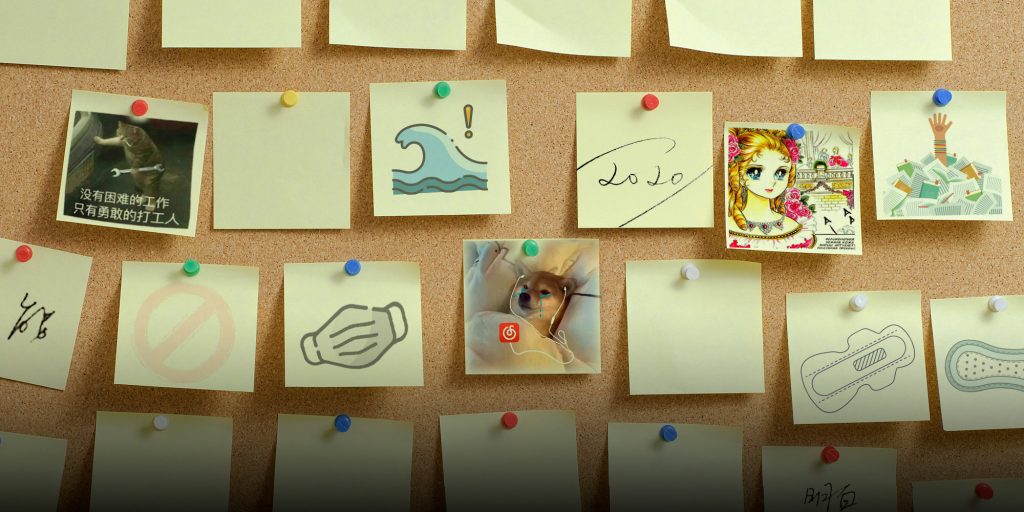From period-impoverished students to depressed music-lovers, Sixth Tone sums up the top online buzzwords from this best-forgotten year.
Say what you will about 2020: It was undeniably a year for the meme-makers and slang-slingers of China.
With months of time on their hands because of the COVID-19 pandemic, Chinese people had plenty of hours to stew in contemplation. Even as the country swiftly brought its outbreak to heel, anxieties about demanding work conditions and a hyper-competitive job market reared their ugly heads.
At the same time, however, those in the country have been inspired by various acts of micro-activism, from a grassroots feminist campaign to eliminate period poverty to a student-led petition against an abusive professor’s proposed reinstatement.
To revisit the highs and lows of 2020, Sixth Tone has compiled a list of memes and buzzwords that best sum up a year that has practically memed itself. Some are borrowed from literary magazine Yaowen Jiaozi, which releases an authoritative annual list; others are our own selections.
We hope you’ll enjoy our summary of this seemingly eternal year in eight words, encapsulating a modicum of the exhaustion, frustration, and liberation China experienced in 2020.

Counter-Marchers (nìxíng zhě, 逆行者)
During China’s COVID-19 outbreak, “counter-marchers” was used to describe the dauntless medical workers who, unlike the vast majority who remained safely indoors, would march to the front lines of battle against the coronavirus, day after day, despite the risks of becoming infected. The term can refer to nurses and doctors, as well as volunteers and community workers.
However, “counter-marchers” took on a more negative association thanks to a controversial TV series called “Heroes in Harm’s Way.” The show — whose Chinese title literally translates to “the most beautiful counter-marchers” — was criticized for depicting female medical workers as reluctant to heed the call to help.

Next Wave (hòulàng, 后浪)
To commemorate China’s Youth Day on May 4, streaming platform Bilibili released a video titled “Houlang,” or “Next Wave.” In a montage of people dancing, cosplaying, and traveling, middle-aged actor He Bing addresses the country’s youth, urging them to acknowledge and appreciate their privilege. “You are fortunate to meet such an era, and this era is even more fortunate to meet you,” he says in the video.
The clip garnered millions of views within hours of its release. While some people felt encouraged by the paternalistic message, others slammed it as tone-deaf, even patronizing. “In real life, such a cool and exciting lifestyle can only happen to a small percentage of people,” one person wrote on Q&A platform Zhihu. “Most young people … just hope to lessen some pressure, and that life can be a little smoother, a little better.” Continue to read the full article here
– This article originally appeared on Sixth Tone. Contributions: Zhang Wanqing and Du Xinyu; editor: David Paulk.






